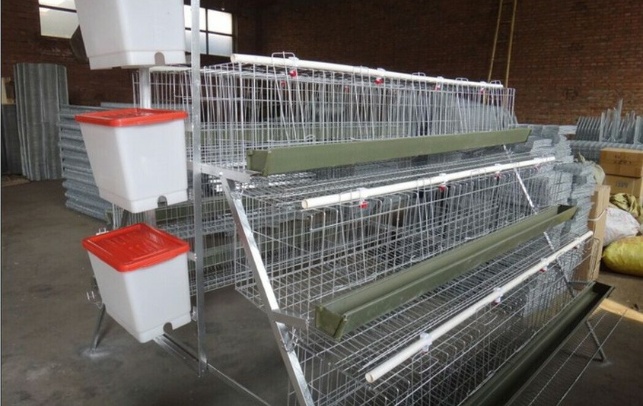The Role of Chicken Cages, Water Feeders, and Feed Troughs
Time : 2024-05-17
In the realm of poultry farming, the choice of equipment and infrastructure plays a pivotal role in ensuring the well-being of the birds and optimizing productivity. Among the essential components, chicken cages, water feeders, and feed troughs stand out as key elements that directly impact the health, comfort, and efficiency of poultry operations.
Enhancing Livability with Thoughtfully Designed Chicken Cages
Chicken cages are fundamental structures in modern poultry farming, providing a secure and organized environment for birds to thrive. These cages come in various designs, including battery cages, colony cages, and free-range systems, each offering unique benefits tailored to different farming practices.
Advantages of Well-Designed Chicken Cages
- Space Utilization: Chicken cages optimize space utilization, allowing for efficient housing of a large number of birds while providing individual nesting areas and perches for comfort.
- Biosecurity: Properly constructed chicken cages help prevent the spread of diseases by limiting direct contact between birds and ensuring a clean and controlled environment.
- Ease of Management: Chicken cages streamline daily operations by facilitating tasks such as feeding, egg collection, and health monitoring, making farm management more efficient and convenient.

Ensuring Hydration with Automatic Water Feeders for Chickens
Automatic water feeders are indispensable tools in poultry farming, providing a continuous and clean water supply to chickens throughout the day. These feeders offer numerous benefits, including reduced labor requirements, improved water quality, and enhanced hydration for the birds.
Benefits of Automatic Water Feeders
- Constant Water Supply: Automatic water feeders ensure a continuous water source for chickens, promoting hydration and overall health.
- Labor Savings: By eliminating the need for manual water refilling, automatic water feeders reduce labor costs and free up time for other farm tasks.
- Water Quality: These feeders help maintain water cleanliness by preventing contamination from dirt, feed particles, and bird droppings, ensuring optimal water quality for the flock.
Promoting Efficient Feeding with Feed Trough in Poultry Operations
Feed troughs play a vital role in delivering feed to chickens in an organized and efficient manner. These troughs come in various sizes and designs, catering to different flock sizes and feeding strategies while minimizing feed wastage and promoting healthy eating habits among the birds.
Features of Effective Feed Trough
- Feed Conservation: Well-designed feed troughs help prevent feed wastage by minimizing spillage and ensuring easy access to feed for the birds.
- Portion Control: Feed troughs allow farmers to monitor and control the amount of feed given to the chickens, promoting balanced nutrition and optimal growth.
- Cleanliness: Properly maintained feed troughs contribute to a hygienic feeding environment, reducing the risk of contamination and promoting the overall health of the flock.
Conclusion: Harmonizing Equipment for Success in Poultry Farming
In conclusion, the synergy between well-designed chicken cages, automatic water feeders, and efficient feed troughs is essential for maximizing productivity, welfare, and profitability in poultry farming operations. By investing in quality equipment and infrastructure that prioritize the health and comfort of the birds, farmers can create a conducive environment for their flock to thrive and flourish. With a focus on efficiency, hygiene, and animal well-being, the integration of chicken cages, water feeders, and feed troughs forms a solid foundation for success in the dynamic world of poultry farming.











